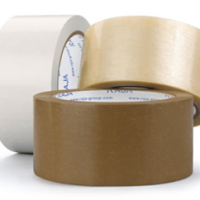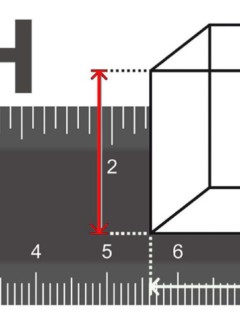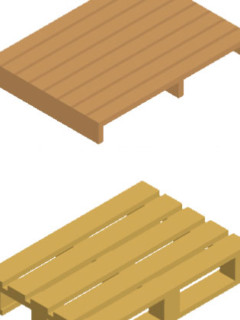This week there is only one topic in the German capital: e-commerce. Just in time for the E-Commerce Expo, everything revolves around mail order. Experts and leaders in the industry talk about their know-how and the challenges facing the industry. The main topics of the lectures are artificial intelligence, online marketing and improving the customer experience in online shops.
Speakers from well-known and successful brands will describe their experiences on five stages, including fashion supplier ABOUT YOU, online giants Google and Facebook, tool provider Searchmetrics, payment processing experts Mastercard and Wirecard, audiobook specialists Audible and mail-order pharmacy APONEO, to name but a few. Those who are on site will benefit from the concentrated knowledge and will probably have a hard time choosing one of the five simultaneous lecture slots.This makes it all the more clear how big a role e-commerce plays in branding, customer loyalty and sales.
Does pure offline business still work at all?
Of course, this raises the question of whether pure offline business still works at all. There are several studies on this. Stationary trade has its merits in the following areas:
The combined solution wins: sales offline and online
Stationary retail has long since caught up with the online world. Fashion brands that used to be known only from the shopping streets have long since been represented with an online shop on the net. And this omnipresence has some advantages: Ordering online and picking up in a shop has long been common practice. Order online and return in the shop? No problem. The advantages are obvious!
Although it is often claimed that brick-and-mortar retail is dying, an increasing number of online brands are relying on a physical presence: Zalando and Mr. Spex have long operated retail shops in Germany. And Amazon Go is also planning to enter the market with its cashierless supermarket chain.
The development shows that the online and offline markets are not competing, but in the best case complementing each other and offering the customer the best shopping experience from both worlds.
Personalisation in e-commerce for more conversions
The better customers feel understood and advised, the more comfortable they feel when making a purchase and the higher the conversion rate. In stationary retail, it is much easier to respond to the needs of customers, as can be seen in the following case study: A customer is strolling through the shopping centre looking for new jumpers. He sees appealing merchandise in the window of a fashion shop, enters the shop and browses through the collection of tops. Suddenly, a salesman approaches the customer and offers him a pair of diving goggles, at a super-special price to boot.
What is hardly imaginable in real life unfortunately happens far too often online. What such a purchase could look like in real life is parodied in the video:
Through appropriate personalisation, the customer is advised precisely on his or her needs. In this way, the customer is offered suitable products at the right time. The personalised and needs-based shopping experience not only increases conversions and sales figures, but also customer loyalty.
Content marketing more than just a buzzword
“Content is King”, the phrase has long been hackneyed and yet remains as relevant as ever. Because high-quality content, i.e. content that offers added value for the user, accompanies the buying process and the decision. Ideally, the content accompanies the user throughout the entire customer journey and ensures that needs are satisfied:
Product reviews to increase sales
The manufacturer always puts the stamp “good” on his products. Logically, his goal is also to sell the products. So how much can buyers trust the product description?
This is where reviews and product ratings from other buyers come in. In fact, 85% of internet users say they trust online reviews as much as personal recommendations. Product reviews appear authentic and should definitely be used to increase sales. It is important to respond to bad reviews quickly and objectively. In this way, less good reviews can also help to improve the reputation.
New technologies change user behaviour and data help to react to this.
As mentioned at the beginning, online business is fast-moving. New technologies are constantly influencing user behaviour and their expectations. It is important to meet these expectations!
An online shop alone is not enough. Mobile First is a matter of course anyway. If the desired information is not found immediately, the customer jumps off. In times of artificial intelligence, machine learning and voice control, intuitive use is not only expected, but taken for granted.
Continuous observation is the only way to ensure that e-commerce merchants do not have to laboriously adapt to changing user behaviour.
Data is everything in this respect! Only with sufficient data can the customer and his behaviour be analysed and the strategy optimised accordingly. Those who wait and see run the risk of losing touch. The communication strategy should therefore experiment with new technologies such as automation and AI, on the one hand in customer communication, on the other hand also in warehousing and modern order picking.
E-commerce does not rest
When it comes to sales strategy, more and more emphasis is being placed on omni-channel measures. This is the only way to accompany the user and potential customer through the entire customer journey. Personalised addressing is becoming increasingly important, especially online. Those who accompany the user with needs-oriented content and always provide exactly the information that is needed at the moment across all touchpoints will lead the company to success. There is no time to take a breather! Constant evaluations, tests and optimisations and new technologies ensure constant change in business and user behaviour.RAJA at the Expo Berlin 2020
Come and visit us! Online trading is namely shipped analogue 😉And we have lots of good ideas on how your products can be cleverly packed and reach the customer well.
We bring with us a large portfolio of e-commerce relevant, environmentally friendly products especially suited for online trading -.
Air cushions made of paper, for example, or film mailing bags (natural based foil) with personalised printing!
Stand D 7.1 : RAJA at Expo Berlin – we are excited! 🙂
Sources
- https://ecommerceberlin.com/
- https://einzelhandel.de/index.php?option=com_attachments&task=download&id=10168
- https://www.onetoone.de/artikel/db/570078frs.html















